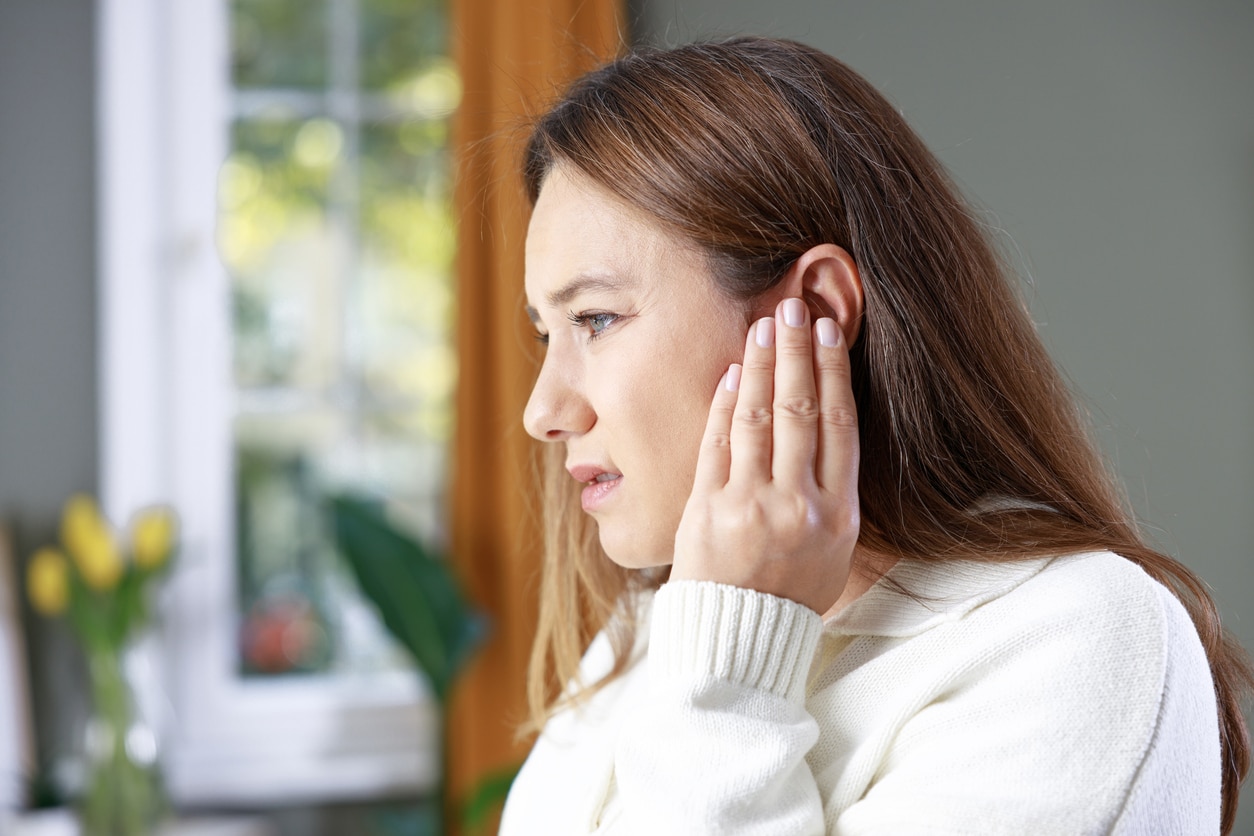Ear crackling is a common sensation that can be both puzzling and annoying. Let’s delve into what might be causing these sounds and explore potential solutions.
Possible Causes of Ear Crackling

A few common causes of ear crackling include:
- Earwax blockages. Earwax, or cerumen, naturally protects and cleans your ears. However, excessive buildup can lead to blockages, causing sensations like crackling, fullness or even temporary hearing loss.
- Eustachian tube dysfunction (ETD). The Eustachian tube connects the middle ear to the back of the throat, helping to equalize ear pressure. When this tube doesn’t function properly—due to factors like colds, allergies, pressure changes or sinus infections—it can result in feelings of fullness and popping or crackling sounds in the ear.
- Tinnitus. Tinnitus affects more than 50 million people in the United States. Characterized by hearing sounds like ringing, buzzing or hissing without an external source, tinnitus can also manifest as crackling noises. It’s often linked to inner ear damage from loud noise exposure, aging or certain medications.
- Hyperacusis. Hyperacusis causes an increased sensitivity to everyday sounds, making them seem louder or more intrusive. Individuals with hyperacusis might perceive normal sounds as clicking or crackling.
Addressing Ear Crackling
A few ways you can address ear crackling include:
- Consult a hearing specialist. A hearing specialist can check for blockages, damage or inflammation in the ear to look for signs of earwax blockages or ETD. Tinnitus presents with an underlying hearing loss in 90% of cases, so your specialist may also conduct a hearing test.
- Manage underlying conditions. For issues like ETD, addressing the root cause—like treating allergies or infections—can alleviate symptoms. If pressure changes cause your ETD, consider chewing gum or yawning to equalize pressure during long flights out of Grapevine.
- Sound therapy. For tinnitus and hyperacusis, sound therapy can be beneficial. This involves using external sounds to mask or retrain the perception of internal noises. Hearing aids and sound machines are great methods for delivering sound therapy.
- Noise-canceling headphones. Noise-canceling headphones can help minimize the impact of external noise for people who suffer from hyperacusis.
- Cognitive behavioral therapy (CBT). CBT can help minimize your negative response to the ear crackling or clicking from tinnitus or hyperacusis. Consult a mental health professional for guidance on CBT.
Because ear crackling might signal other health concerns that require attention, it’s crucial to seek help from a hearing specialist if it persists longer than a few days. Contact Heard It Through The Grapevine Audiology, PC today to schedule an appointment with one of our specialists.